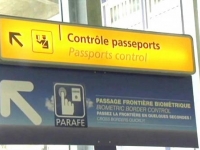Politics
European Parliament calls to ensure visa reciprocity with US for all his members
Four EU states need visa to travel to US
USPA NEWS -
Citizens of four EU member states still need a visa to travel to the US. On Tuesday, European Parliament called on the Commission to take the measures foreseen in EU legislation in order to ensure full visa reciprocity. With 37 votes to 21 and 6 abstentions, the Civil Liberties adopted a draft resolution urging the Commission to present a delegated act suspending for 12 months the visa waiver for US nationals, as established in the so-called reciprocity mechanism.
Bulgaria, Croatia, Cyprus and Romania are the four EU countries whose nationals are required to hold a visa to enter the US, while the rest of EU citizens are exempted of that requirement for short-stays (up to 90 days in any 180-day period), as are US nationals when visiting the Union. According to EU legislation, if a third country does not lift the visa requirements within 24 months of a formal notification of a situation of non-reciprocity, the EU Commission must adopt a delegated act suspending the visa waiver for its nationals for 12 months. Both the European Parliament and the Council could object to such delegated act.
The situation of non-reciprocity affecting Bulgaria, Croatia, Cyprus and Romania was formally raised on 12 April 2014 (at the time, Poland was also concerned, but Polish citizens can travel to the US visa-free since last year), so the deadline for the Commission to act expired on 12 April 2016.
The Parliament already requested the Commission to comply with the rules in a plenary resolution adopted in March 2017. MEPs underline that “the issue at stake is (...) one of solidarity between EU member states,“ but also “an institutional one in which the Parliament and the Council are currently deprived of their prerogative“ of an adequate involvement in the application of the reciprocity mechanism. The draft resolution also stresses that the reintroduction of visa requirements for US citizens would only be effective in case of no objection by the Parliament or the Council to the delegated act.
The non-legislative resolution will be up for discussion in a future plenary session, following an oral question to the Commission -also adopted by the Civil Liberties Committee on Tuesday with 40 votes to 21 and 5 abstentions.
Liability for this article lies with the author, who also holds the copyright. Editorial content from USPA may be quoted on other websites as long as the quote comprises no more than 5% of the entire text, is marked as such and the source is named (via hyperlink).






